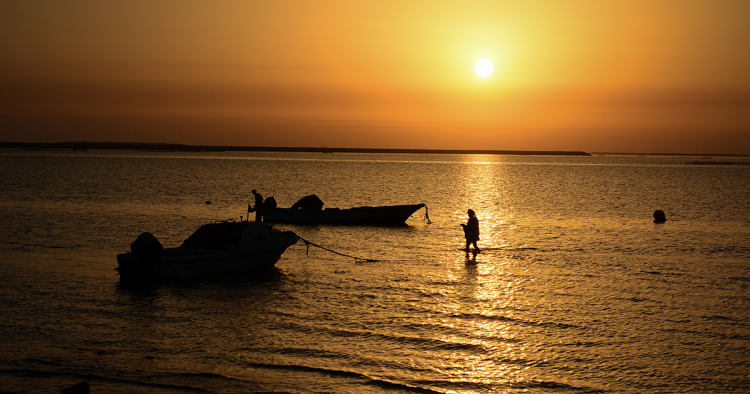In collaboration with regional and international experts and organizations, the Middle East Institute is implementing a program aimed at promoting regional approaches to solve climactic and anthropogenic challenges to the waters of the Gulf.
The continued viability of Gulf waters is vital to the long-term health, prosperity, and security of regional populations. Among other uses, the Gulf:
- Has been critical in dealing with regional freshwater shortfalls through desalination;
- Provides a key pathway for the transportation of goods and supplies in and out of the region, bolstering economic productivity in the Gulf Cooperation Council (GCC), Iraq, and Iran;
- Houses a diverse aquacultural and fisheries industry that provides food to local populations and a source of exports out of the region; and
- Offers commercial and personal recreational opportunities that enhance local tourism through water-related activities such as fishing, swimming, and boating.
Despite the critical need for access to Gulf waters, there are numerous trends that threaten its health. Fundamentally, further degradation of the health of Gulf waters will place all of its benefits at risk.
Through the development process and in coordination with colleagues from around the region and globally, Dr. Mohammed Mahmoud, the Director of MEI’s Climate and Water Program, has developed a two-phase program for addressing the challenges of protecting Gulf waters.
In Phase One, the program will quantify environmental metrics that define the Gulf’s current value and establish thresholds that would diminish it. These metrics will be associated with water quality, marine ecosystems, and human use. A report to be prepared at the end of Phase One will summarize the technical analysis of metrics, the quantification of the Gulf’s environmental value, and provide recommendations for preserving its value.
In Phase Two, the project will promote regional climate cooperation at the diplomatic and policy level for the countries of the GCC, Iraq, and Iran. By relying on experts and policymakers from the region, the program will prioritize ensuring that the stakeholders drive and own the process. The objective will be to use the recommendations from Phase One to formulate strategies to address environmental issues, identify best practices for environmental preservation suitable for the region, and map out a sustainable process to maintain cooperative initiatives among the nations sharing Gulf waters. A public-facing component of Phase Two will aim to raise public awareness of the environmental threat to the Gulf and build popular support for measures to protect it.
Currently, MEI is researching the metrics that can quantify the Gulf’s environmental value and identify the thresholds that can affect the multiple benefits of the Gulf.
The driving principle behind the development of this innovative MEI program is simple: by taking coordinated and collaborative action in this initiative, the GCC, Iraq, and Iran can work toward ensuring that the Gulf continues to provide the plethora of benefits it generates for the mutual security of all within the Gulf region.
Amb. (ret.) Gerald Feierstein is senior vice president and a distinguished senior fellow on U.S. diplomacy at MEI, as well as the director of the Arabian Peninsula Affairs Program. The views expressed in this piece are his own.
Photo by Hussain Altareef/Pacific Press/LightRocket via Getty Images
The Middle East Institute (MEI) is an independent, non-partisan, non-for-profit, educational organization. It does not engage in advocacy and its scholars’ opinions are their own. MEI welcomes financial donations, but retains sole editorial control over its work and its publications reflect only the authors’ views. For a listing of MEI donors, please click here.













